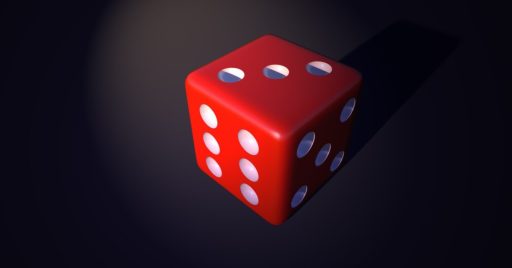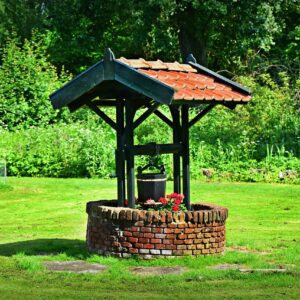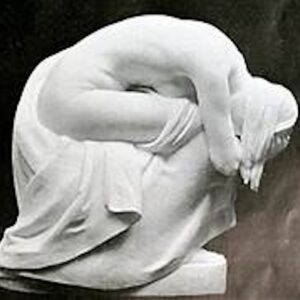My son and I have recently been enjoying the Opposites poems of Richard Wilbur. Before you jump to any conclusions, please don’t imagine that my house is some haven of aesthetic discernment—we watch more than our share of Clifford and read mostly ABC books. But every now and again we read poetry, and second only to Yeats’s “An Irish Airman Foresees His Death,” my son says that the Opposites are his favorites.
These whimsical little verses came from a game Wilbur played with his family, where one person would choose a word and another person had to come up with that word’s opposite. I’m not sure what the rules were, exactly, but judging from the collection, extra points must have been awarded for unexpected opposites. Some of the best poems in the book hinge on puns (which, in the spirit of opposites, have been called both the highest and the lowest form of humor). Take, for example, opposite 28:
What’s the opposite of bat? It’s easy enough to answer that. A bat sleeps upside down in trees, Whereas a horse, with equal ease, Can sleep while upright in his stall. Another answer might be ball.
It’s a pleasant way to learn. I used to read these poems to my students when I taught elementary school, and most of them found it fun to see how the language slipped around and tricked them. In every class, that was how at least one of them described it: “It feels tricky.” But they liked the trick. This is because we know instinctively that language is a slippery business. The whole proposition—that by words we can know reality—is frankly a little absurd, so it’s appropriate when that absurdity shows up in our language. Think about it: English has more words than any other language (over a quarter million), but even with all that, English finds it necessary to pile meaning upon meaning within a single word, sometimes completely incompatible or even opposing meanings, as though we know that nothing, not even something as simple as bat, can ever really be understood.
That’s the genius of Wilbur’s Opposites: in one motion, it embraces and exploits the limitations of the language. It does that masterful thing—the thing all of us writers want to do—where even as we use a word we invoke what it does not mean, and that absent meaning, by some mysterious grace, lends meaning to what is there. I could say that Wilbur’s Opposites were apophatic. But my son is three, so I say they’re funny.
I’m thirty—my children are being born, and my mother is dying, and my friends are burying their children born dead. More and more, reality does not fit neatly into words, and I find myself groping around in the shadows between the words, because that’s where what I’m trying to say really lives. Eliot said it better in “East Coker”:
Trying to learn to use words, and every attempt Is a wholly new start, and a different kind of failure Because one has only learnt to get the better of words For the thing one no longer has to say.
That is why I read and reread the Opposites: because I suspect that within these childish verses is deep wisdom. There is a posture towards reality that I would like to imitate—a posture of respect, and awe, and awareness that seeing and saying something is only the first step towards knowing it, not the last. As much as I like the clever verses about “bat,” “white,” and “donut” (a favorite around here), there are a lot of other words I wish Wilbur had found opposites for, words like: able, listen, orphan, child, leaving, kind, mean, rose, well. A few others (since he published More Opposites too): back, cleave, fall, grave, just, lie, wind. He did an opposite poem for present (number 19), but not for gone. He used lonely to describe another opposite (two), but did not give it its own poem.
Of course the word I most wish he’d defined by opposite is die. I think we’d all appreciate a little clarity, even if clarity-by-opposite, on that word. For example: right now my mother is dying of cancer, bit by bit. It is slow, so slow that it does not seem like death, not at least in the way I always thought about death. It’s so unlike what we imagined that we do not name it death. We name it illness, sickness, infection, a bad day.
I always imagined death as a clean break, a discernable absence with clear outlines, so that I would be able to say, That is what is gone. But it’s not like that. My mother is still here, and she is gone, and both are true at the same time, which makes no sense. No one can live and die at the same time.
Die. I wish Wilbur had written an opposite poem for that little word, but he did not. Maybe, if he had, he would have written:
The opposite of die is very likely Cards, or jacks, or marbles—really any Game piece with which takes some skill to win And you do more than simply roll again; Where the outcome really might depend On wit, or God, or courage, or a friend— On anything but chance, which doesn’t give A shit. Another opposite is live.
Something like that. He didn’t swear much, Wilbur, and he didn’t include die in his book, and maybe that absence is able to tell us something.
I have no answers to all this. I have only the words of others. But when I read those words, I begin to see a pattern of opposites, of apophasis. I see Eliot saying:
In order to arrive at what you do not know You must go by a way which is the way of ignorance. In order to possess what you do not possess You must go by the way of dispossession.
I see Yeats’s airman realizing, up there among the clouds, that a thing as precious as life makes sense only in relation to its opposite: “I balanced all, brought all to mind / the years to come seemed waste of breath, / a waste of breath the years behind / in balance with this life, this death.” It turns out that my son’s other favorite is just another poem of opposites, but opposites squared, opposites opposed to opposites in a great swirling cloud of apophasis that, at its still dark center, hints at something. Yeats puts real Life and real Death (which we would certainly think of as opposites) on the same side of the scale, in opposition to the “waste of breath” that is imagined life and death (another set of opposites).
Death, it seems, is nothing like I imagined. But neither is life. So perhaps there is great wisdom in Wilbur’s choice to leave die and live out of his Opposites, in favor of things like donut and present. Perhaps we cannot talk about life or death in general, because there is only the particular: this life, and this death, which in a life well lived, need not be opposed to one another but may come together to form a whole. It reminds me of the Catholic tradition of praying for a holy death; by implication, the plea is also for a holy life, because the two cannot be separated. Perhaps Wilbur did not write an opposite for Life and Death because he knew what Yeats’s airman knew: the true opposite of real Life is not Death; it is false life, life that refuses to accept the reality of death, and therefore is not life at all.
J.C. Scharl is a poet and essayist. Her work has appeared in the New Ohio Review, The Lamp, and Dappled Things, among many others.





